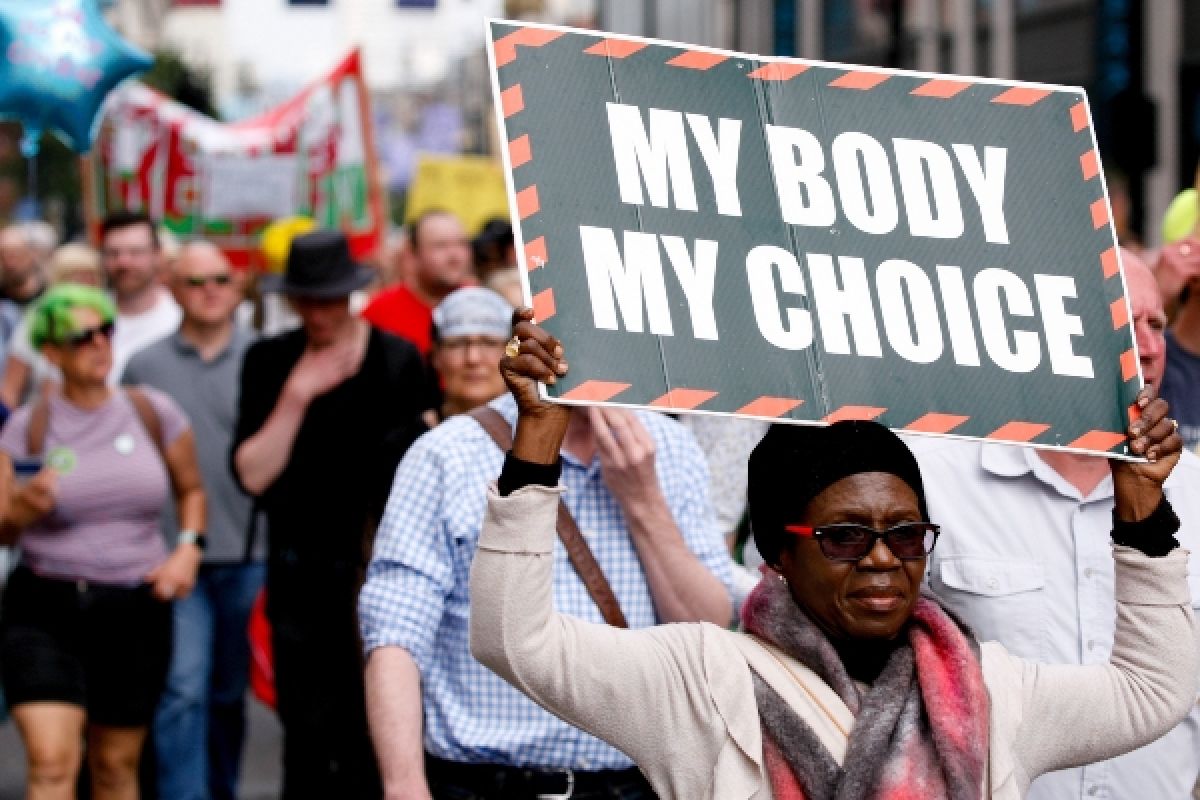Ex-World Health Organization (WHO) scientist Dr David Bell, and historian Toby Green, on why Africa needs to stop following Western policies and learn from its own experience.
Medical colonialism is back. After two decades of increasing life expectancy across Africa, the last year has seen control of the continent’s public health goals return to distant global institutions more reminiscent of the European imperialist era.
Despite low Covid-19 mortality across most of the continent, African societies and economies have been subjected to one externally promoted and mis-directed public health response after another – even though, in contrast to countries in the West, Covid-19 is a minor disease among many others that must be weighed in the balance of public health.
What has driven these catastrophic responses? Wealthy donors and global health bodies have advocated policies leading to the destruction of day-labourers’ livelihoods through lockdowns, the removal of children’s education through school closures, and an obsessive focus on Covid-19.
This is reversing years of effort in reducing mortality from malaria, tuberculosis (TB) and HIV-Aids.
Now, their new target is a vaccine passport.
Aviation agencies on the continent have already been talking up the possibility of introducing them by the end of 2022, while in Morocco a vaccine passport has been created, allowing vaccinated people to break the curfew and travel abroad without restrictions. Though the Africa Centres for Disease Control has said that vaccine passports are currently inappropriate on the continent, pressure appears to be growing to roll out this response.
This is not a private digital health record – but a Pass. A Pass provided by others, to enable access to basic freedoms.
Pushed by a small but very wealthy group of corporations and individuals who stand to gain greatly from management of pharmaceuticals, this technology can monitor the travel and freedom of movement of ordinary people.
All of this on the basis of a disease that barely rates on most African countries’ mortality statistics.
Mass vaccination is not medically justified in Africa. Much of the population is already immune. A February study of blood donors in South Africa found antibody levels of 63 per cent in Eastern Cape province, 46 per cent in Free State, 52 per cent in KwaZulu-Natal, and 32 per cent in Northern Cape. Further north, high rates of immunity have been shown in Malawi, Kenya and Nigeria.
And even if antibody rates weren't so high, more than 50 per cent of people in sub-Saharan Africa are under 19 years, an age at which Covid-19 is nearly always mild and mortality exceedingly rare.
Less than one per cent of the population is over 75 years, above which most mortality occurs elsewhere.
The vulnerable minority of Africans can be protected without vaccinating the majority.
But even if mass vaccination was medically justified in Africa, there are plenty of other downsides to a vaccine passport.
In the first place, this will clearly be discriminatory.
Reports are showing high levels of vaccine hesitancy on the continent, especially among poorer populations.
Discriminating between those who have and have not been vaccinated will target those who have already suffered disproportionately from the catastrophic economic impacts of lockdowns.
Perhaps even more significantly, using data to identify between different 'groups' is something that has been misused in the past – and could be again in the future.
In Apartheid South Africa, the ‘Pass Laws’ were used to determine who could and could not enter certain areas and participate in certain activities. In Nazi Germany, so-called ‘punch cards’ supplied by the American company IBM were vital in collating data on ethnicity and in ‘processing’ Jews, who were ultimately sent to the death camps.
In post-colonial Africa, too, such misuse of identity passes has been known, with passports used to identify – and thus easily butcher – Tutsis in Rwanda in 1994 and Igbos in Nigeria in the 1960s.
Vaccine passports may seem harmless, but history shows that they could be a ticket to discrimination, marginalisation and even genocide.
The UK’s proposed vaccine passports, which are currently being trialed at sporting events like the UEFA Euro 2020s, Wimbledon and Ascot horse races, have ‘special categories’ with the option to record people’s ‘racial and ethnic origins’. These functions may not currently be active, but it doesn’t take much imagination to realise how such information could be used to discriminate against people if activated in the future.
Putting race aside, vaccine passports are especially dangerous in a continent like Africa, where mass vaccination against Covid-19 is unnecessary and, in fact, enormously counter-productive, distracting from the management of other more deadly diseases.
The WHO may have sided with wealthy donors who profit from mass vaccination and vaccine passport technologies, implying that without mass global vaccination the whole world is at risk – but in doing so it is sacrificing African health needs for those of the richer world.
Every nurse vaccinating young Africans against Covid-19, is one less nurse inoculating against real child killers.
This is a tragedy on many levels. Agencies tasked with ensuring equality of humanity – and with human rights – should be stepping in to support the people whose freedoms and health have been under assault for over a year, not those who profit from this misery while entertaining each other among Swiss mountains and lakes.
Dr David Bell is a public health physician and former medical officer and scientist at the World Health Organization (WHO). Toby Green is a Professor of African History at King’s College, London, and author of The Covid Consensus: The New Politics of Global Inequality.




